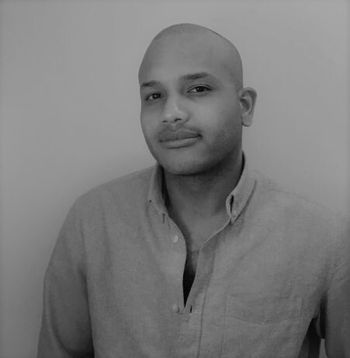University of Alabama-Birmingham invites 'White colleagues' to discuss race 'amongst themselves'
The University of Alabama-Birmingham hosted an event titled "White People Talking About Racism."
While the event was "open to all," much of the language used to promote the forum suggested otherwise.
The University of Alabama-Birmingham recently held an event for White people to discuss racism “amongst themselves.”
On Wednesday, during Black History Month, UAB hosted a virtual event titled, “White People Talking About Racism,” where a mostly-White panel comprising university employees and local leaders discussed race, Black Lives Matter, and the future of the “anti-racist” movement. The event was featured as part of UAB’s discussion series, Critical Conversations: Community-Wide Civic Dialogue Forum.
“In 2020 we witnessed a Black Lives Matter movement that has arguably been more inclusive and cross-cultural than any movement prior,” said an advertisement on UAB’s website, but “As more white people show up in the streets supporting Black, Indigenous, and People of Color (BIPOC)…their presence has been met with a mixture of both acceptance and skepticism.”
[RELATED: Elon University cancels segregated ‘White caucus’ amid backlash]
”For some,” it continued, “this is a shift from a long tradition of whites being silently complicit in racist ideas and practices upon BIPOC communities and bodies. For others, the genuineness of the solidarity we witnessed from white activists is questioned.”
The advertisement for the event on the college’s official website invited “our white colleagues to the table to unpack these thoughts amongst themselves and discuss the challenges, opportunities, and what’s next in engaging one another in anti-racist work,” although the school noted the event was “open to all and participation is intended to be diverse.”
”White People Talking About Racism” is not racially segregated like events previously covered at Campus Reform, but the intention of other UAB programs is more ambiguous.
The university’s Office of Student Multicultural & Diversity Programs, for example, hosts the BMEN Peer Mentoring Program, a “mentoring program…designed to provide academic and social support to Black male students entering UAB.”
BMEN partners new Black freshmen with Black upperclassmen, hoping the arrangement will help with “improving the retention and graduation rates” of Black males, a demographic, it says, has the “lowest retention rate of any group on most college campuses.”
[RELATED: 5 times colleges segregated for diversity’s sake]
Integrating American universities was one of the key accomplishments of the Civil Rights Movement. But as Campus Reform has reported on before, that legacy is being challenged by identity-based student and faculty groups participating in segregated orientations, graduations, and residence hall programs.
The University of Alabama System is infamous for resisting racial integration during the Civil Rights Movement. On June 11, 1963, Gov. George Wallace stood in the doorway of the University of Alabama-Tuscaloosa to prevent two Black students, James Hood and Vivian Malone, from registering at the university, defying a court decision ordering their admission. Integration was enforced when President John F. Kennedy federalized Alabama’s National Guard and directed it to force Governor Wallace’s compliance.
In a statement provided to Campus Reform, a spokesperson for UAB said reiterated that “participation is intended to be diverse. All are welcome.”
The spokeswoman did not respond when asked about BMEN.
Follow the author of this article: Dion Pierre

